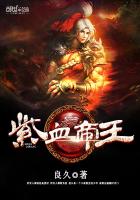To Tarzan these things were wonders. They appealed to his intellect and to his imagination. He saw the flowers close and open; he saw certain blooms which turned their faces always toward the sun; he saw leaves which moved when there was no breeze; he saw vines crawl like living things up the boles and over the branches of great trees;and to Tarzan of the Apes the flowers and the vines and the trees were living creatures. He often talked to them, as he talked to Goro, the moon, and Kudu, the sun, and always was he disappointed that they did not reply.
He asked them questions; but they could not answer, though he knew that the whispering of the leaves was the language of the leaves--they talked with one another.
The wind he attributed to the trees and grasses. He thought that they swayed themselves to and fro, creating the wind.
In no other way could he account for this phenomenon.
The rain he finally attributed to the stars, the moon, and the sun; but his hypothesis was entirely unlovely and unpoetical.
Tonight as Tarzan lay thinking, there sprang to his fertile imagination an explanation of the stars and the moon.
He became quite excited about it. Taug was sleeping in a nearby crotch. Tarzan swung over beside him.
"Taug!" he cried. Instantly the great bull was awake and bristling, sensing danger from the nocturnal summons.
"Look, Taug!" exclaimed Tarzan, pointing toward the stars.
"See the eyes of Numa and Sabor, of Sheeta and Dango.
They wait around Goro to leap in upon him for their kill.
See the eyes and the nose and the mouth of Goro. And the light that shines upon his face is the light of the great fire he has built to frighten away Numa and Sabor and Dango and Sheeta.
"All about him are the eyes, Taug, you can see them! But they do not come very close to the fire--there are few eyes close to Goro. They fear the fire! It is the fire that saves Goro from Numa. Do you see them, Taug? Some night Numa will be very hungry and very angry--then he will leap over the thorn bushes which encircle Goro and we will have no more light after Kudu seeks his lair--the night will be black with the blackness that comes when Goro is lazy and sleeps late into the night, or when he wanders through the skies by day, forgetting the jungle and its people."Taug looked stupidly at the heavens and then at Tarzan.
A meteor fell, blazing a flaming way through the sky.
"Look!" cried Tarzan. "Goro has thrown a burning branch at Numa."Taug grumbled. "Numa is down below," he said. "Numa does not hunt above the trees." But he looked curiously and a little fearfully at the bright stars above him, as though he saw them for the first time, and doubtless it was the first time that Taug ever had seen the stars, though they had been in the sky above him every night of his life. To Taug they were as the gorgeous jungle blooms--he could not eat them and so he ignored them.
Taug fidgeted and was nervous. For a long time he lay sleepless, watching the stars--the flaming eyes of the beasts of prey surrounding Goro, the moon--Goro, by whose light the apes danced to the beating of their earthen drums. If Goro should be eaten by Numa there could be no more Dum-Dums. Taug was overwhelmed by the thought.
He glanced at Tarzan half fearfully. Why was his friend so different from the others of the tribe? No one else whom Taug ever had known had had such queer thoughts as Tarzan.
The ape scratched his head and wondered, dimly, if Tarzan was a safe companion, and then he recalled slowly, and by a laborious mental process, that Tarzan had served him better than any other of the apes, even the strong and wise bulls of the tribe.
Tarzan it was who had freed him from the blacks at the very time that Taug had thought Tarzan wanted Teeka.
It was Tarzan who had saved Taug's little balu from death.
It was Tarzan who had conceived and carried out the plan to pursue Teeka's abductor and rescue the stolen one.
Tarzan had fought and bled in Taug's service so many times that Taug, although only a brutal ape, had had impressed upon his mind a fierce loyalty which nothing now could swerve--his friendship for Tarzan had become a habit, a tradition almost, which would endure while Taug endured.
He never showed any outward demonstration of affection--he growled at Tarzan as he growled at the other bulls who came too close while he was feeding--but he would have died for Tarzan. He knew it and Tarzan knew it;but of such things apes do not speak--their vocabulary, for the finer instincts, consisting more of actions than words. But now Taug was worried, and he fell asleep again still thinking of the strange words of his fellow.
The following day he thought of them again, and without any intention of disloyalty he mentioned to Gunto what Tarzan had suggested about the eyes surrounding Goro, and the possibility that sooner or later Numa would charge the moon and devour him. To the apes all large things in nature are male, and so Goro, being the largest creature in the heavens by night, was, to them, a bull.
Gunto bit a sliver from a horny finger and recalled the fact that Tarzan had once said that the trees talked to one another, and Gozan recounted having seen the ape-man dancing alone in the moonlight with Sheeta, the panther.
They did not know that Tarzan had roped the savage beast and tied him to a tree before he came to earth and leaped about before the rearing cat, to tantalize him.
Others told of seeing Tarzan ride upon the back of Tantor, the elephant; of his bringing the black boy, Tibo, to the tribe, and of mysterious things with which he communed in the strange lair by the sea. They had never understood his books, and after he had shown them to one or two of the tribe and discovered that even the pictures carried no impression to their brains, he had desisted.
"Tarzan is not an ape," said Gunto. "He will bring Numa to eat us, as he is bringing him to eat Goro.
We should kill him."
Immediately Taug bristled. Kill Tarzan! "First you will kill Taug," he said, and lumbered away to search for food.














